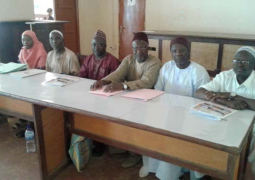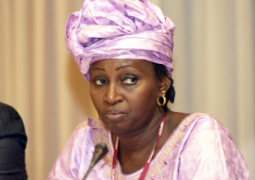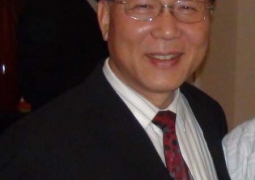(Friday 3 September 2010 Issue)
Aware of the role the media plays in the society in informing, educating and entertaining the masses, the Gambia Committee on Traditional Practices (GAMCOTRAP) yesterday began a three-day capacity building workshop for over 30 media practitioners mostly managers, editors and senior reporter from across the country.
The three-day forum was aimed at building the capacity of media practitioners in the senior management cadre of media houses in order to support effective and progressive reporting on harmful traditional practices and domestic violence.
The training being held at the Baobab Holiday Resort Hotel in Bijjilo and was also aimed at contributing to the Africa regional strategies to eradicate female genital mutilation.
Addressing the opening ceremony on behalf of the Minister of Information and Communication Infrastructure, Jerreh Sanyang, Principal Assistant Secretary stated that one of his ministry's roles is to contribute and support the formulation and implementation of Government policies and programmes for the promotion of cohesion, democracy and good governance in the society.
According to him, the government is aware of the critical role women play in society and the efforts of NGOs in complementing its efforts in advancing the empowerment of women and promoting issues relating to gender equality.
"We also note with keen interest GAMCOTRAP's collaboration with the media in building the capacity of media practitioners, and the use of media to reach out to the masses on issues of female genital mutilation and other harmful traditional practices," he added.
The objective of training s in line with the Government's policy for advancement of Gambian women and raising consciousness and promotion of reproductive health and rights, Mr. Sanyang said.
The workshop will, therefore, build the capacity of programme managers, news editors and senior reporters on issues related to female genital mutilation and other forms of gender-based violence thus ensuring balance and accurate reporting.
"This training will, in essence, ensure that media practitioners have a better understanding of gender specific issues and would enhance the quality of their broadcast programs and newspaper", he emphasized.
Dr. Isatou Touray Executive Director GAMCOTRAP declared that the NGO has over the past years taken the initiative to share information with media practitioners on the health effects of FGM on the sexual reproductive health and rights of women and girls.
"We are now beginning to see evidence of the impact of those initiatives from the responsible reporting monitored on the subjected matter", she said.
The complications of FGM are enormous and grave, and the media needs to play a critical role in shaping opinion and also create awareness in the general public, she added.
"As practitioners you have a stake in bringing about the right change, and contributing to the advancements of women and children", she continued.
Noting that for those working with community radios can also influence the discourse on FGM, Dr. Touray said the taboo surrounding the practice has been long broken, and that this gives leeway for the media to engage in sensitization initiatives in radio stations.
Fatou Kinteh who represented the UNFPA, the funders of the workshop, said that harmful traditional practices are forms of violence committed against women in certain communities and societies.
She added that these include FGM, early and forced marriage, dowry murder, honour killings and the various taboos or practices that prevent women from controlling their own fertility.
She lamented that these practices lead to death, disability, physical and psychological harm for millions of women annually.
According to her, UNICEF recommends that no girl should become pregnant before the age of 18, because she is not yet physically ready to bear children.
The opening was chaired by the board chairperson of GAMCOTRAP and member for Wuli West Sidia Jatta.
Read Other Articles In Article (Archive)




